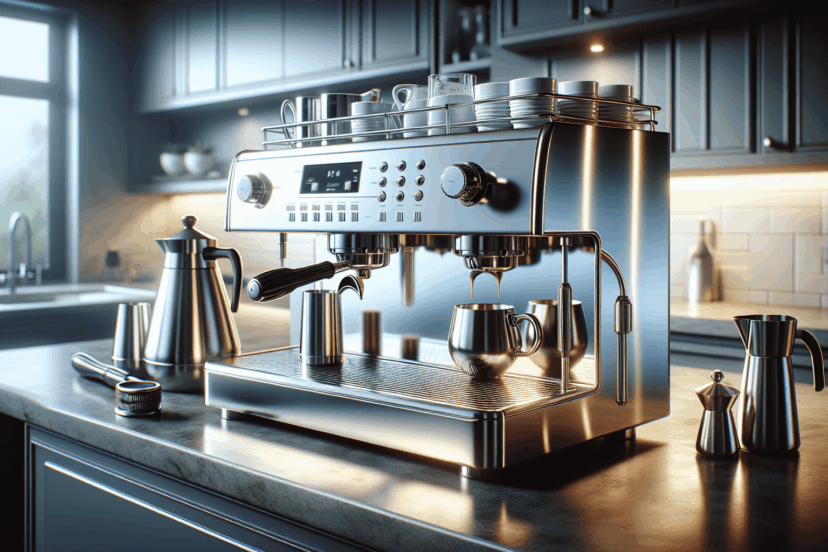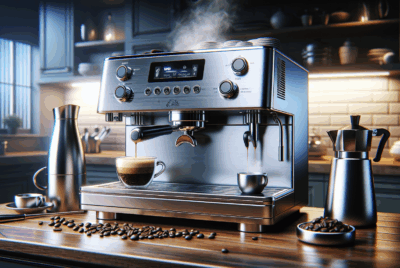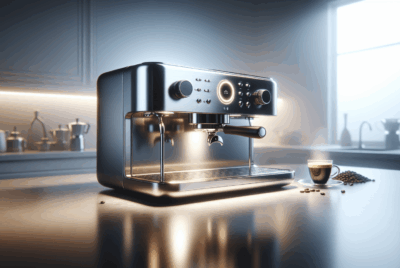The Ultimate Guide on How to Clean an Espresso Machine
As an Amazon Associate, I earn from qualifying purchases, at no additional cost to you. Disclaimer
Have you ever wondered how to keep your beloved espresso machine in top-notch condition? I mean, enjoy that perfect espresso shot every time without any leftover residue altering the taste. Today, I’m excited to guide you through cleaning your espresso machine, ensuring it lasts longer and delivers consistently excellent coffee.
Explore the Best Espresso Machines
Understanding Why Cleaning Your Espresso Machine Is Crucial
Owning an espresso machine is a pleasure; maintaining it is a responsibility. Why is cleaning your espresso machine so essential, you ask? Well, it’s all about the taste, performance, and longevity of your equipment.
Preservation of Taste
Enjoying a cup of espresso brewed to perfection is a simple pleasure. However, leftover coffee oils, ground coffee, and general residue can accumulate in your espresso machine over time. This buildup affects the taste of your coffee, often giving it a bitter aftertaste. Regular cleaning helps you preserve the authentic flavors of your fresh coffee beans.
Performance Optimization
Your espresso machine needs to be in peak condition to deliver the perfect espresso shot. Clogs and blockages from leftover residues can hamper the machine’s performance, affecting its ability to extract every ounce of flavor from your coffee grounds. By keeping it clean, you ensure it’s operating at its best, giving you flawless coffee every time.
Extending the Life of Your Machine
Investing in an espresso machine might not be a small affair, so it’s only wise to ensure it lasts long. Regular cleaning and maintenance guarantee that components like the pump, the heating element, and the portafilter remain in good shape. This practice prevents premature wear and tear, saving you from future repair costs and ultimately extending the machine’s lifespan.
Essential Tools and Supplies for Cleaning
Before diving into the cleaning process, let’s discuss the tools and supplies you’ll need. Preparing these beforehand makes the cleaning process much smoother.
Checklist of Tools and Supplies
Here’s a helpful table detailing the basic tools required:
| Tool | Purpose |
|---|---|
| Soft Cloth | Wiping surfaces without scratches |
| Small Brush | To clean narrow and intricate spaces |
| Cup | Using for rinsing parts |
| Dishwasher Soap | Cleaning tasks requiring mild soap |
| Descaling Solution | For descaling the water reservoir and internal elements |
Remember to have these items readily available before starting. Can you think of any other tools that might help? It’s always good to be over-prepared.
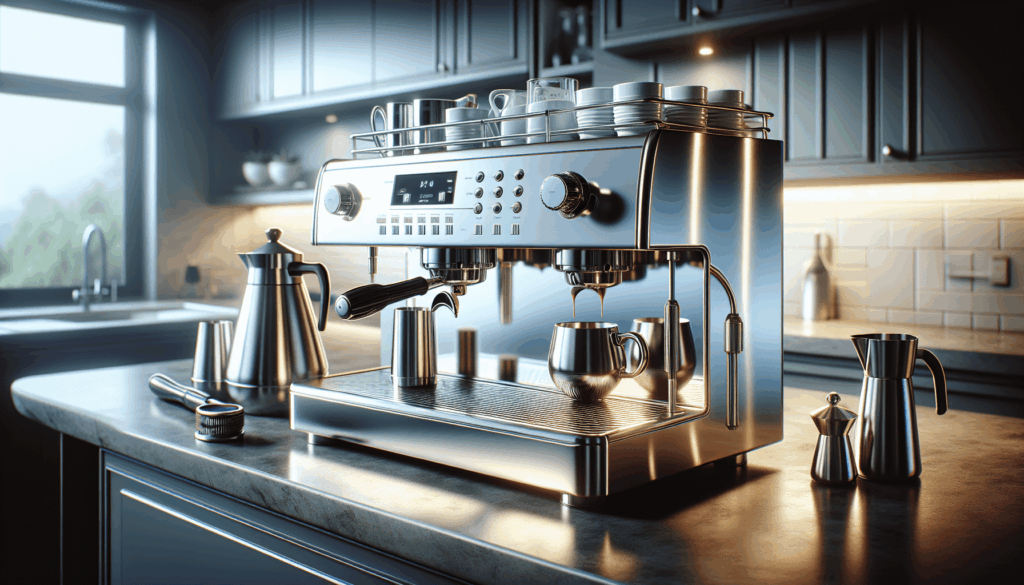
Routine Daily Cleaning
Consistent maintenance makes a huge difference. Handling simple cleaning tasks daily can prevent bigger problems down the line. Let’s look at a daily cleaning routine to keep your machine in excellent condition.
Cleaning the Portafilter and Group Head
The portafilter and group head need daily attention. After all, this is where most of the coffee residue and oils accumulate.
- Remove the Portafilter: After brewing your espresso, remove the portafilter and knock out the puck of used coffee grounds.
- Rinse the Portafilter: Rinse the portafilter under hot water to clear out any residue. Use a soft cloth if needed but be careful not to use soap.
- Clean the Group Head: Run water through the group head to rinse away any leftover grounds and oils. For a thorough clean, use a small brush to dislodge any stubborn debris.
Backflushing the Machine
Certain machines allow backflushing, which cleans the internals of the espresso machine. Consult your user manual to determine if your model is compatible.
- Use a Blind Filter: Insert a blind filter into the portafilter.
- Run the Machine: Start the machine for a few seconds to build up pressure, then stop. This process will release internal water, washing away any residual oils and coffee particles.
- Repeat: Perform this step 3-5 times for optimal cleaning.
Clean the Steam Wand
Don’t forget your steam wand — this part can get clogged with milk residue if not properly cleaned after every use.
- Flush with Water: After each use, immediately purge the steam wand by releasing steam for a few seconds.
- Wipe Down: Use a damp cloth to clean the wand’s exterior.
Weekly and Monthly Deep Cleaning
While daily cleaning is crucial, conducting weekly and monthly deep clean sessions is just as important. Let’s break down what these entail.
Weekly: Remove and Clean Shower Screen and Coffee Basket
Some components require less frequent attention but are critical to performance and hygiene.
- Unscrew the Shower Screen: Carefully remove the shower screen with a screwdriver (if detachable) and wash it with water to clean away coffee buildup.
- Clean the Coffee Basket: Take out the basket from the portafilter and wash it thoroughly to remove embedded oils and grounds.
Descale the Machine Monthly
Water minerals can build up inside your espresso machine, leading to potential damage. Descaling helps prolong the life of your components.
- Prepare Descaling Solution: Mix the descaling solution with water according to the instructions.
- Run the Machine: Pour the solution into the water tank, turn it on, and run the solution through the machine just like you’re brewing coffee.
- Flush the System: Rinse thoroughly with clean water to remove any descaling solution and residue.
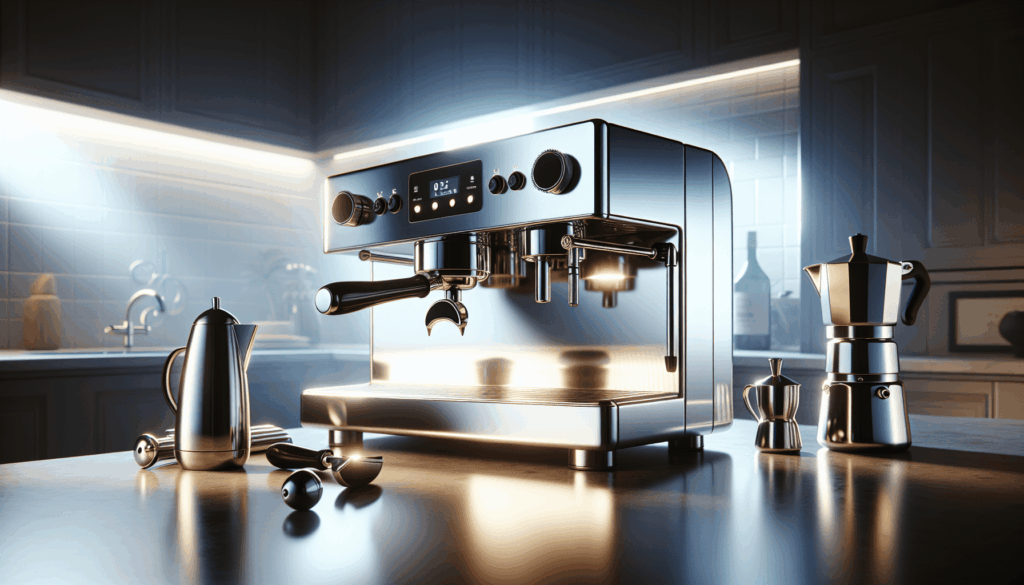
Troubleshooting Common Cleaning Issues
Even with regular maintenance, problems can arise. Have you noticed anything unusual during coffee extraction lately? Identifying and troubleshooting issues is part of keeping your espresso machine in top working order.
Weak Coffee Taste
If your coffee tastes weak, the machine could be clogged somewhere. Try the following:
- Backflush the Machine: Ensure any clogs are cleared by utilizing the backflushing method.
- Check Portafilter and Group Head: Residues could be impacting the shots. Clean thoroughly.
Leaking Water
Notice any unexpected leakage? The culprit might be hardened gaskets or misaligned components.
- Inspect Seals and Gaskets: Check for wear and tear in the machine’s seals. Replace if needed.
- Ensure Component Alignment: Ensure all components are correctly aligned and screwed tightly.
Machine Not Heating Properly
If your espresso is coming out cold, a few things could be causing it.
- Heating Element Descale Needed: Mineral buildup might be preventing the machine from heating correctly. Perform a descaling cycle.
- Consult a Technician: If the problem persists, it might be time to bring in professional help.
Encouraging Best Practices and Habits
Adopting cleaning best practices ensures your espresso machine stays in fine form without needing frequent repairs. Here’s a quick wrap-up of habits worth integrating into your routine:
- Mindful Brewing: Be gentle when preparing your coffee to minimize spills or residue.
- Regular Inspections: Check components regularly for signs of wear or damage.
- Quality Water: Use filtered water to reduce mineral buildup.
Final Thoughts
Cleaning an espresso machine might seem daunting at first. Still, with a touch regularity and dedication, it becomes second nature over time. Your taste buds—and your beloved machine—will thank you with each flawless brew. Remember, you’re not just cleaning a machine; you’re ensuring each cup of your favorite espresso is nothing short of perfection.

